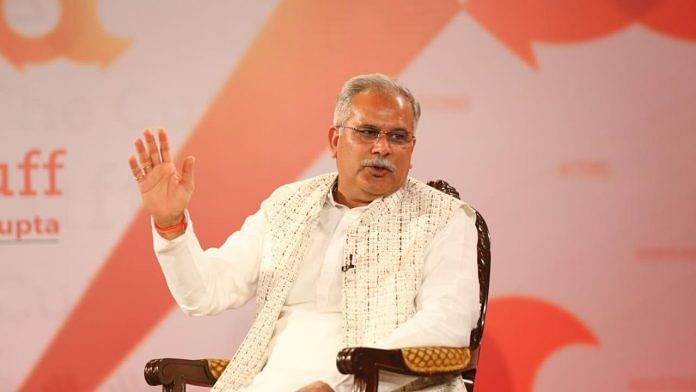New Delhi: The Congress-led Chhattisgarh government Wednesday challenged the National Investigation Agency Act 2008 as “unconstitutional” in the Supreme Court.
The law was passed — along with the Unlawful Activities (Prevention) Amendment Bill — by the Manmohan Singh government within three weeks of the Mumbai terror attacks on 26 November that year.
The NIA Act provided for a national-level agency to investigate and prosecute offences listed in a schedule, including those under the Atomic Energy Act 1962 and the Unlawful Activities Prevention Act 1967. It also allowed for the creation of special courts for trial of these offences.
The NIA was constituted “to investigate and prosecute offences affecting the sovereignty, security and integrity of India, security of State, friendly relations with foreign States and offences under Acts enacted to implement international treaties, agreements, conventions and resolutions of the United Nations, its agencies and other International organisations and for matters connected therewith or incidental thereto”.
Several other reforms were also introduced by Chidambaram citing the Mumbai terror attacks. This included the creation of the National Counter-Terrorism Center, which was supposed to start operations in 2010. The move was, however, stalled by the negative response of almost all Opposition-ruled states and put into cold-storage. He had also mooted the National Intelligence Grid (NATGRID), the progress of which has been reportedly slow.
However, the state government’s suit in the Supreme Court under Article 131 of the Constitution of India, now counters every justification that the Congress government had used to defend the law back in 2008.
Also read: India must make Intelligence Bureau responsible for countering terrorism, not RAW
“Discretionary and arbitrary powers”
At the time of passing the Bill in 2008, then Home Minister P. Chidambaram had staunchly defended the law.
During the five-hour debate on the two bills, Chidambaram had sought to allay any apprehensions of misuse of the new tough measures to deal with terrorism, saying adequate safeguards have been envisioned.
“What we have done is to do more than adequate balance of requirements of investigating and prosecuting agencies and the demands of human rights and the people of India for strong anti-terror laws,” Chidambaram said, adding that “no extraneous” provisions were added to the NIA Act.
The ‘statement of objects and reasons’ of the Bill also justified the setting up of the agency, citing growing instances of terrorism in the country.
The Bill sought to justify the need for a central agency to combat terrorism offences with national ramifications, stating, “There have been innumerable incidents of terrorist attacks, not only in the militancy and insurgency affected areas and areas affected by Left Wing Extremism, but also in the form of terrorist attacks and bomb blasts, etc., in various parts of the hinterland and major cities, etc.”
The Chhattisgarh government’s plea now claims that the NIA Act “confers unfettered and discretionary and arbitrary powers” on the central government.
“Moreover, there are no rules governing the exercise of power which gives ample discretion to the defendant to exercise its power at any juncture without providing any reason or justification for the same,” the plea states.
‘Against federal spirit’
The Congress government had then specifically addressed the concerns raised by some members that setting up of the NIA would dilute the federal structure of the Constitution. Then party spokesperson Abhishek Singhvi had told the media that the intention was merely to introduce a “state-of-the-art law”.
The Chhattisgarh government has now contended in the Supreme Court that the law goes “against the federal spirit as envisaged under our Constitutional scheme wherein both Centre and State are considered to be independent in their respective jurisdiction”.
It states that Parliament could not have enacted the law in the first place. This, it says, is because ‘police’ is a part of the state list under Schedule Seven to the Constitution of India.
It also argues that the provisions of the law “leave no room of coordination and precondition of consent” from the state government. This, it says, “clearly repudiates the idea of state sovereignty as envisaged under the Constitution of India”.
Also read: Four reasons why BJP is losing to Congress and regional parties in assembly elections







Tomorrow some congress CM will tell this thing in emblem is against federal structure, inspite law made by congress government.
Great question mark on wisdom of PC, Manmohan.
This only congis can do. Hilarious!!